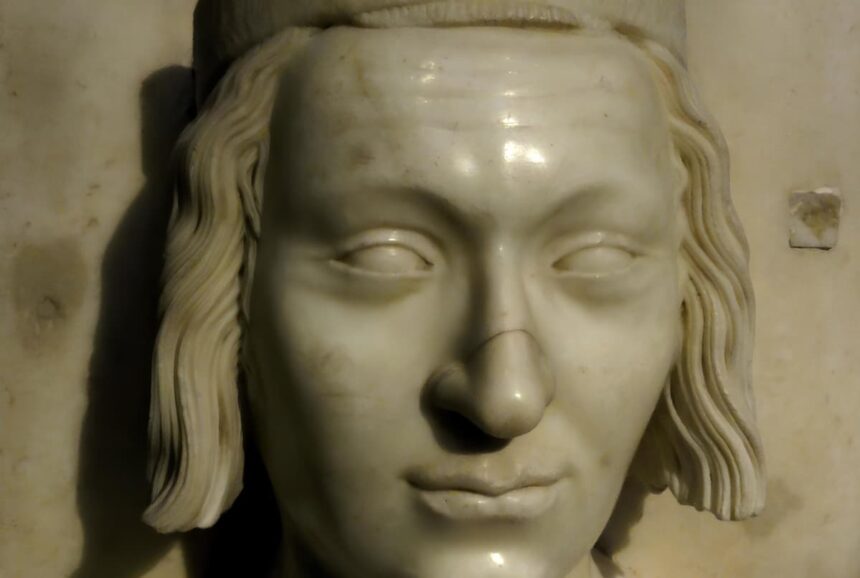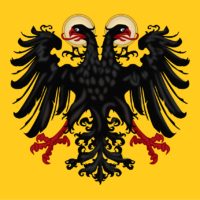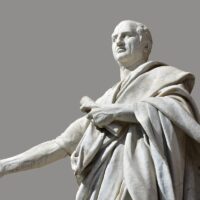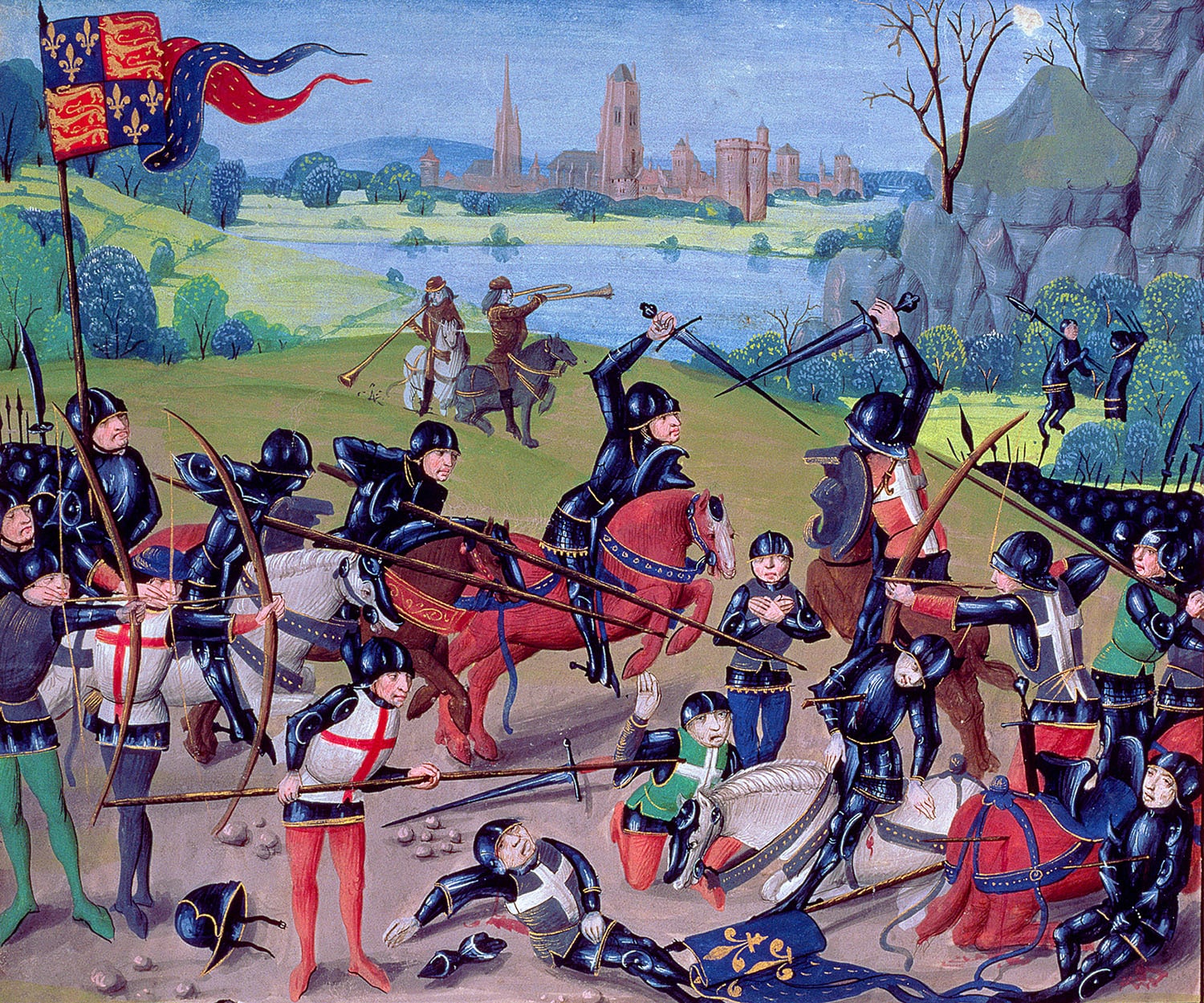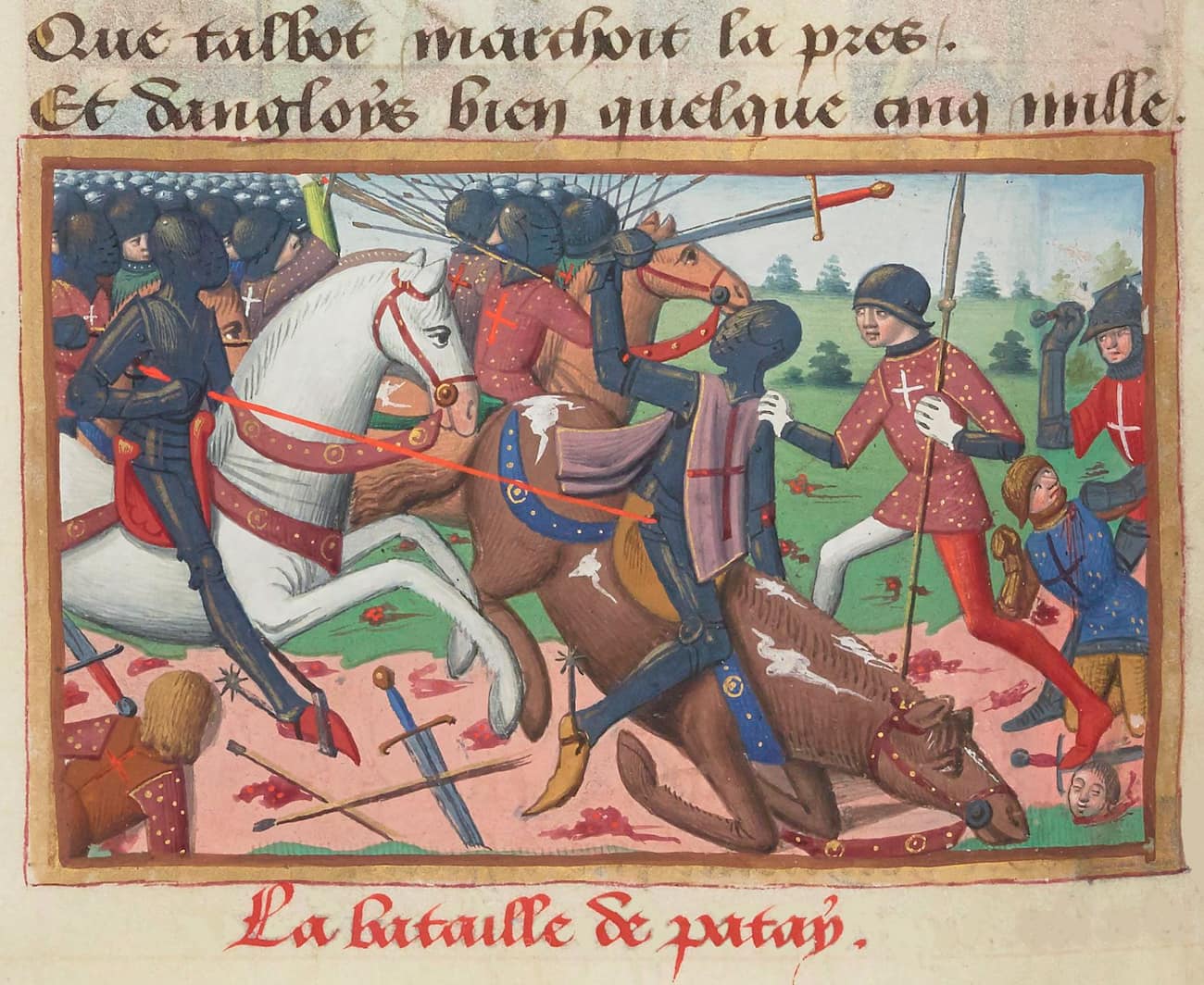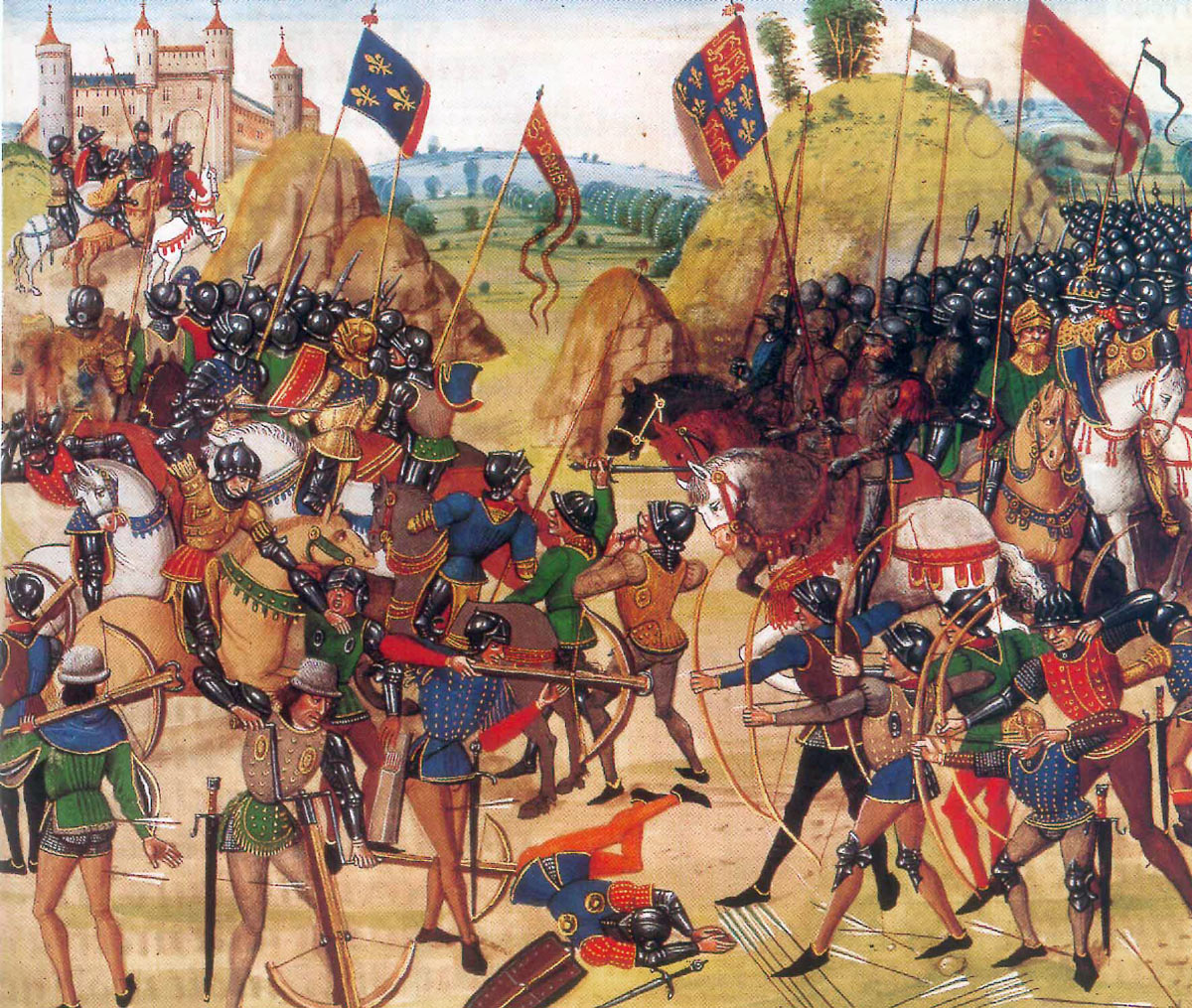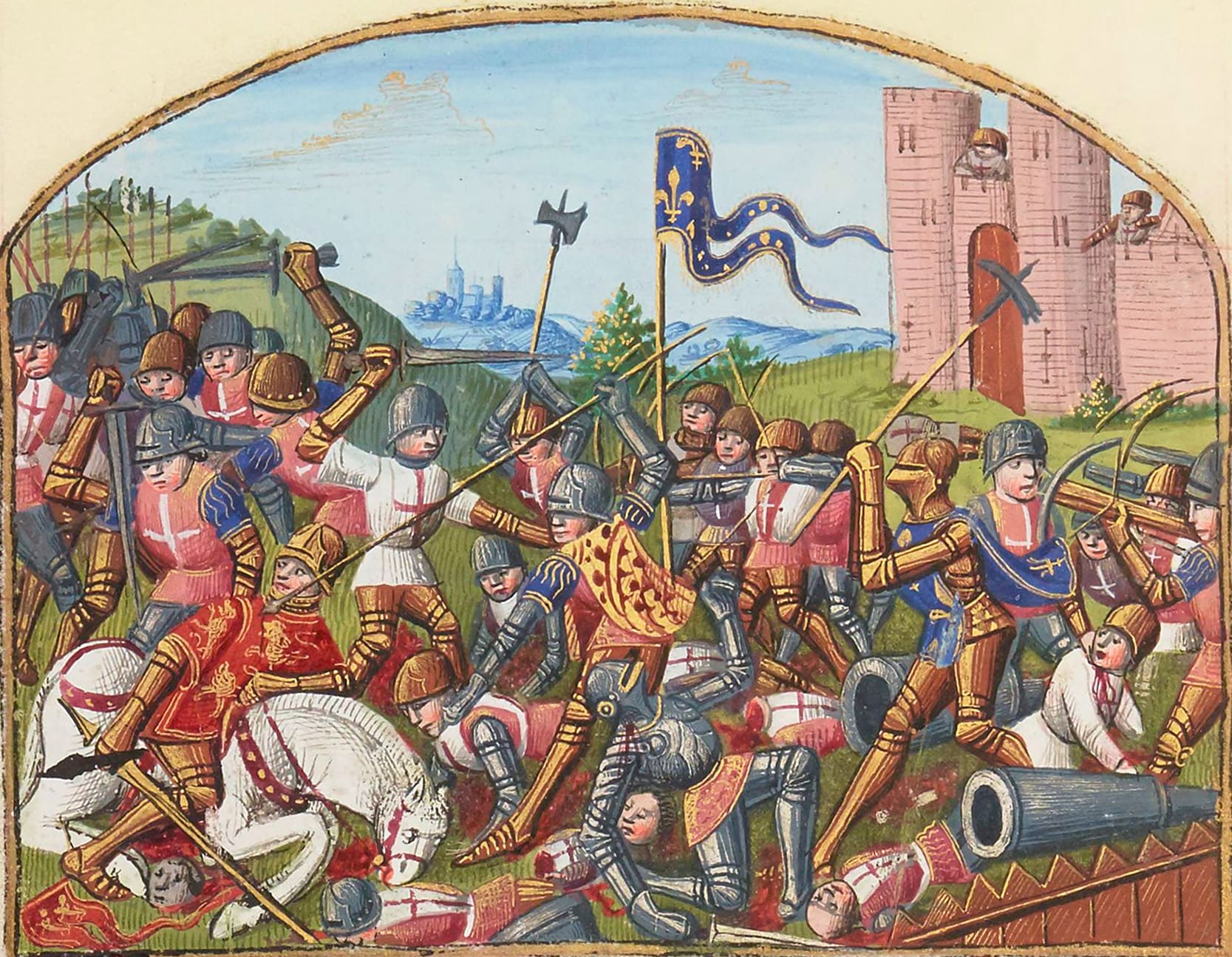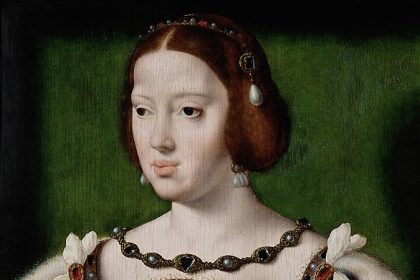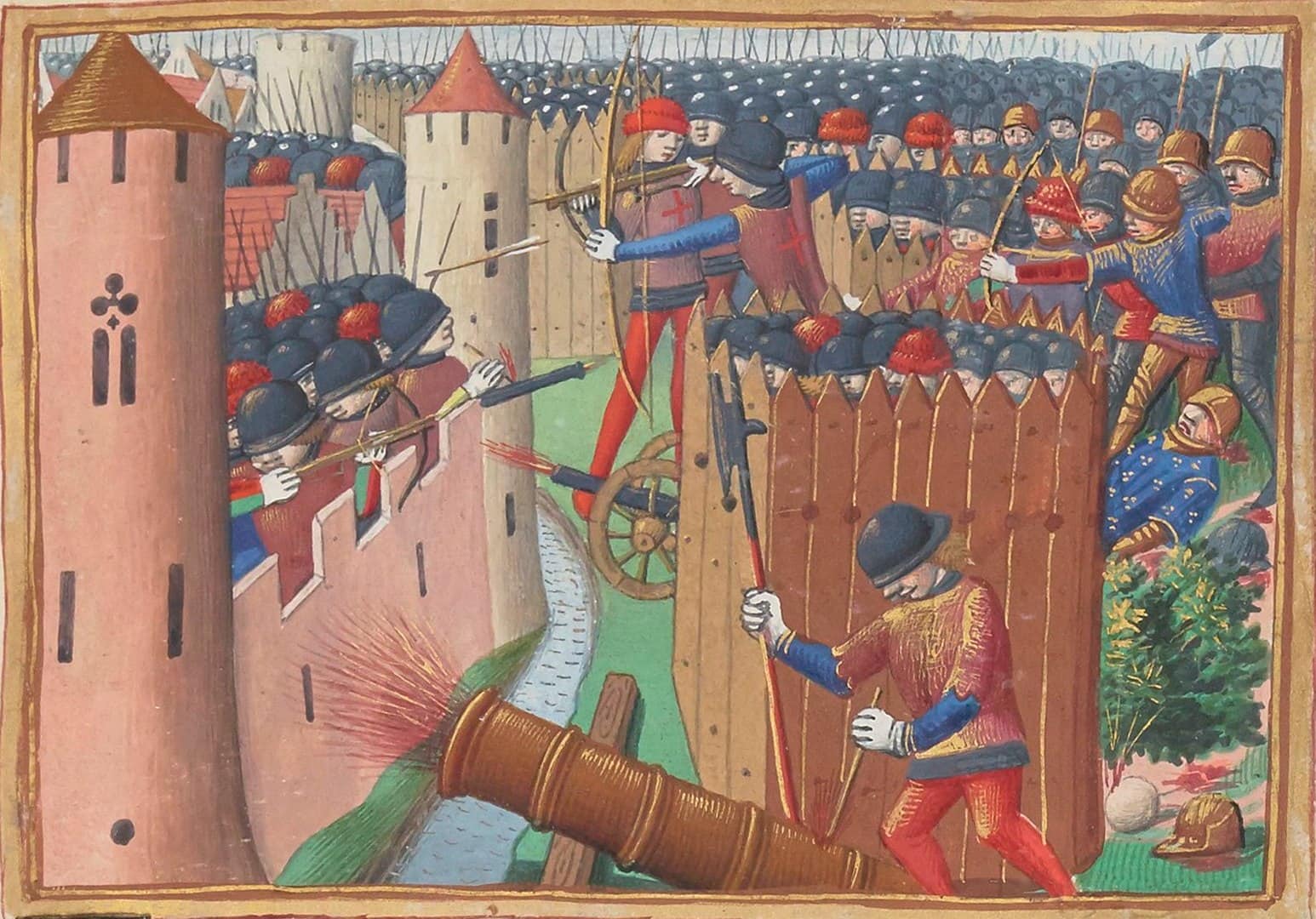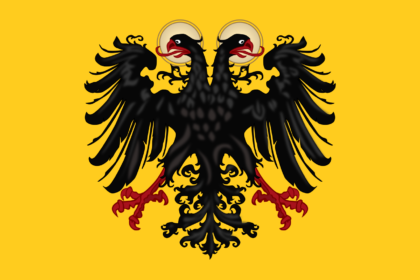Charles V, known as “the Wise,” was King of France from 1364 to 1380 during the dark times of the Hundred Years’ War. The son of John II the Good, he became regent of the kingdom during his father’s captivity in England. He faced peasant revolts (the Jacquerie), a Parisian uprising led by the provost of the merchants, Étienne Marcel, and had to contend with the ambitions of Charles the Bad, King of Navarre.
Amid these multiple dangers, he was forced to negotiate the Treaty of Brétigny (1360) with England, resulting in significant territorial losses. Once he became king, well supported by the constable Du Guesclin, he restored peace, reestablished royal authority, and managed to recapture almost all the English-held territories on the continent. Charles V is considered one of the “great” kings of France.
A Difficult Beginning to Charles V’s Reign
Born in Vincennes on January 21, 1338, the future Charles V was the eldest son of John II the Good and Bonne of Luxembourg. He was the first heir to the French throne to bear the title of “Dauphin” (in 1349). After John II was captured by the English at the Battle of Poitiers (1356), in which Charles participated, he became regent of the kingdom and had to confront the Parisian revolt, led by Étienne Marcel, and the Jacquerie in 1358.
In this disastrous context, he was forced to negotiate the Treaty of Brétigny (1360) with the English.
This treaty stripped the royal domain of the southwest and several northern territories but did not bring peace, as unemployed or unpaid bands of mercenaries ravaged the kingdom.
After his father John II died on April 8, 1364, Charles’s legitimacy was contested by both the English and supporters of his rival, Charles the Bad.
The latter was defeated by Du Guesclin at the Battle of Cocherel, marking the beginning of Charles V’s reign and ensuring the continuity of the Valois dynasty. The new king was then crowned in Reims on May 19, 1364.
Charles V: The First “Most Christian” King
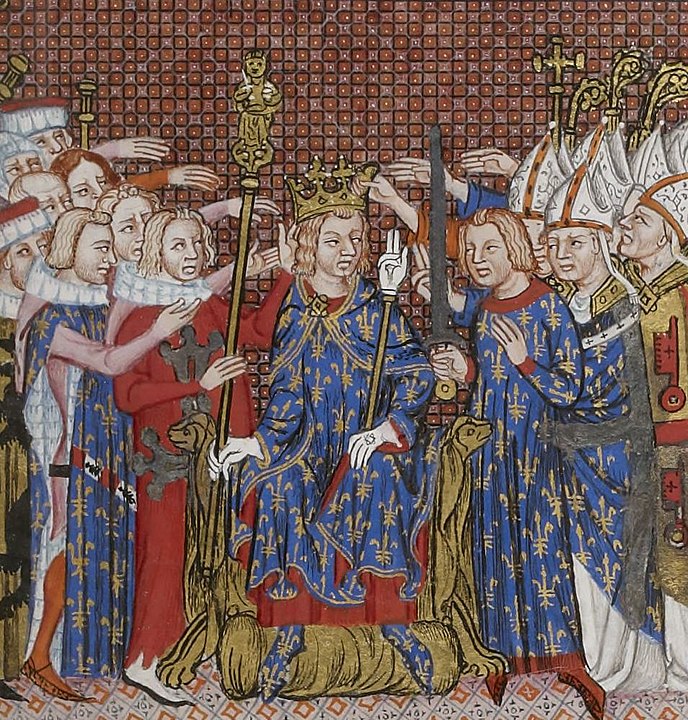
Despite his frail health and unremarkable appearance, the new king was a wise man. His admirers, starting with Christine de Pisan, praised his moderation, virtues, and love for literature and the arts. He enjoyed discussing political theory with figures such as Nicolas Oresme, Philippe de Mézières, and Raoul de Presles.
At the height of his power in 1376, he asked a jurist, Évrard de Tremaugon, to write Le Songe du verger, a treatise on the theory of the state presented as a dialogue between a cleric and a knight. Initially written in Latin, it was later translated into French. This desire to make knowledge accessible led the king to commission numerous translations of classical authors, including Aristotle’s Politics and St. Augustine’s City of God.
To implement his policies, he adhered to these principles, which required the monarch to govern according to reason for the common good. In addition to these “natural laws” governing the “body politic,” the king was bound by the duties imposed by his coronation oath. More than his predecessors, Charles V was attuned to his religious responsibilities: he was the first king of France to be called “Most Christian.” He even commissioned a Carmelite, Jean Golein, to write a treatise extolling the coronation ceremony and the king’s healing powers.
Charles V’s piety guided all his political actions, yet he remained firm in his dealings with the pope and bishops. Authoritative and methodical, his adversaries dubbed him “the lawyer.” In reality, he skillfully employed propaganda to appeal to the emerging public opinion. He also surrounded himself with capable advisors, mostly from Parliament and trained in canon or civil law.
A Well-Supported Monarch
Men like chancellors Guillaume de Dormans and Pierre d’Orgemont, Hugues Aubriot (provost of Paris), constable Bertrand Du Guesclin, and admiral Jean de Vienne, and later, Bureau de La Rivière, already saw themselves as part of a body serving the state. General advisors on taxation helped manage the collection of taxes, introduced since 1360.
In the royal administrative regions, numerous officials implemented royal orders and dispensed justice, while tax collectors and elected officials gathered revenues, which still constituted extraordinary finances.
By expanding the presence of the king and the state, these officials helped create national unity. Only the principalities, whether ancient like Brittany or the county of Foix, or new like those granted to the king’s brothers as apanages, resisted. These great princes were also appointed lieutenant generals in parts of the kingdom where they exercised all powers. This was less a sign of weakness than a form of power that continued to grant the close royal family a vital role in governance.
Blood ties remained as important in politics as the king’s wisdom and his officials’ loyalty.
Time of Reconquest
Until 1367, although the ransom payments were slow, the Treaty of Calais was generally respected. The two sovereigns tried to deal with the mercenaries and fought through intermediaries. The advantage seemed to be with the English. In Brittany, John IV of Montfort defeated the French-backed candidate, Charles of Blois, at Auray in 1364. In Spain, the Black Prince won at Najera in 1367. In both cases, Du Guesclin was captured. However, the contentious issue of sovereignty stemming from the Treaty of Calais, which involved renunciations that had not yet been exchanged, remained.
Who held sovereignty over Guyenne, governed by the Black Prince? The prince expanded its administration and, to pay his troops, demanded new taxes. The numerous and unruly Gascon nobility invoked their “liberties.” Blood ties between the Albret family and Charles V played a role. Appeals began, addressed simultaneously to the king of England and, secretly, to the king of France. On September 8, 1368, a public appeal was made to Charles V. A year later, when Edward III resumed his title of King of France and Guyenne was “confiscated” from him, the war resumed.
This time, however, the advantage lay with France, which had transformed its army and adopted a new strategy. Du Guesclin, appointed constable in 1370, preferred small, incremental offensives, capturing towns and castles one by one. Meanwhile, the scorched-earth policy cut off enemy supply lines and made large raids pointless.
This strategy paid off. It succeeded not only because of well-paid, motivated troops but also due to the fortifications built by towns and villages. In four years, the English lost everything except Calais, Bayonne, and Bordeaux, while Charles the Bad had to abandon his Norman possessions in 1378. Only Brittany, which rebelled against the French king, remained under John IV’s control.
Time of Revolts
Taxes, renewed year after year, had effectively become permanent. The population, though reduced and “tempered” by hardship, persevered. There was even a recovery in the rural economy, as land previously abandoned returned to cultivation. Those who survived the mid-14th-century crisis lived better. However, this recovery soon led to population growth, which brought renewed pressures. By 1375, southern France faced bad harvests, famine, and epidemics.
In both rural and urban areas, increasing poverty fueled population movements and swelled the labor market. Revolts, like the Tuchins uprising that began in Auvergne in 1363, spread. Between 1378 and 1382, this unrest spread across Europe, seemingly without direct connections between the different centers of rebellion.
The insurgents, largely composed of common people joined by marginalized groups and “vagabonds,” had no clear program. They primarily demanded the abolition of taxes. Charles V’s decision to abolish hearth taxes on September 16, 1380, on his deathbed, only increased the unrest.
Legacy of Charles V
Despite everything, Charles V had overseen the kingdom’s recovery, strengthened royal authority, and stabilized the currency. He implemented financial reforms, extended the privileges of the University of Paris, and built or beautified several palaces (including the Hôtel Saint-Pol and the Louvre). In 1367, Charles V founded the Royal Library (the future National Library of France), which would gather a significant collection of manuscripts. Free of religious fanaticism, he protected the Jews and sought to curb the activities of the Inquisition in Languedoc. Toward the end of his life, he contributed to the start of the Great Schism by recognizing the antipope Clement VII over Urban VI.
Married in 1350 to his cousin Jeanne of Bourbon, Charles V was succeeded by his son, Charles VI. The latter’s reign would undo much of his father’s political achievements, and the kingdom would again be plunged into the turmoil of the Hundred Years’ War.



